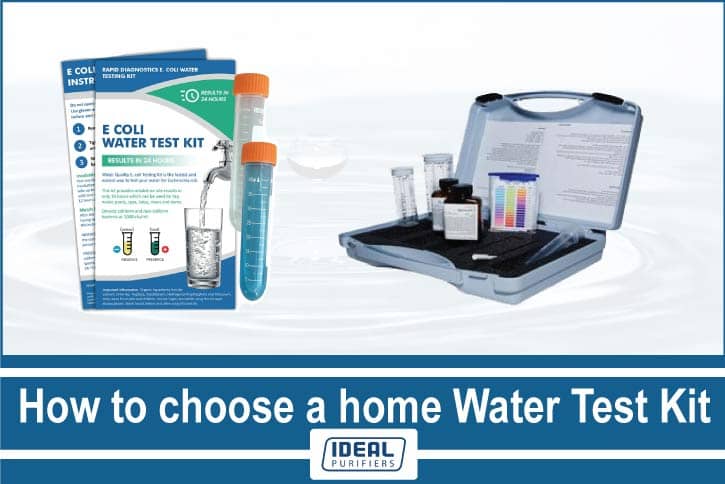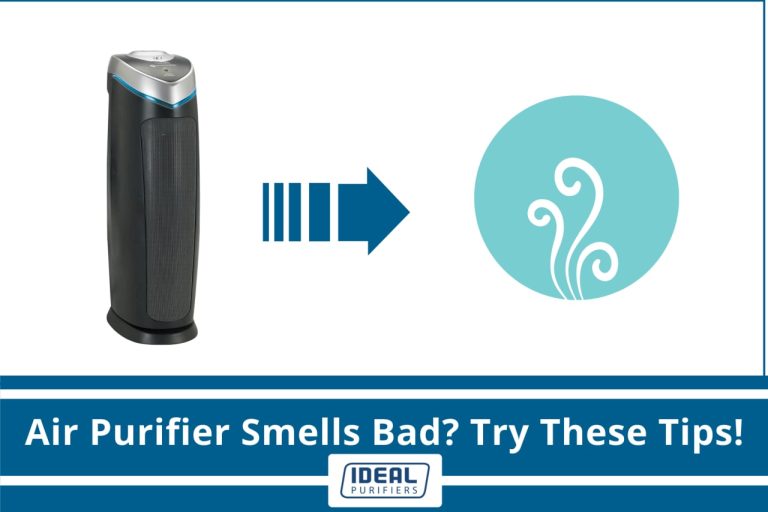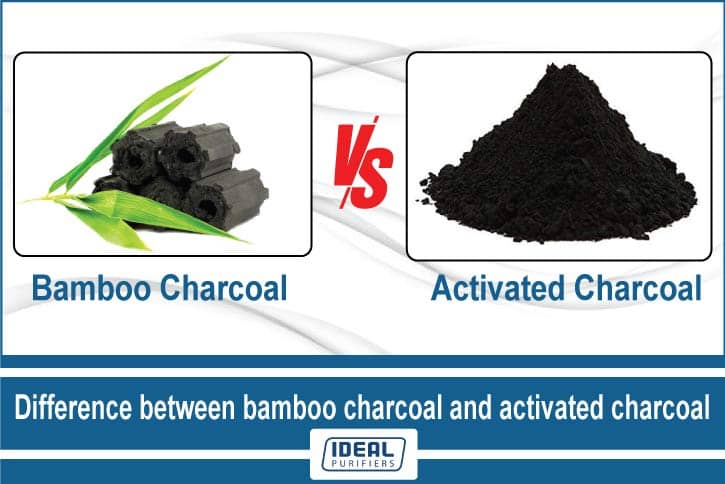Water is the source of life, but it can also be a source of illness. That’s why it’s important to test your home water supply regularly. While you can have your water professionally tested, it’s also possible to do it yourself with a home water test kit.
If you are considering purchasing a home water test kit, keep reading this guide. In the below part of the article, you will find an in-depth guide on everything you need to know about home water test kits.
Table of Contents
What is a Home Water Test Kit?
Home water test kits are an easy and convenient way to test the quality of your water at home. Most test kits will test for a variety of different contaminants, including bacteria, lead, and chlorine. Test kits are relatively inexpensive and can be found at most hardware stores and online. While it is not necessary to test your water regularly, it is a good idea to do so if you have concerns about the quality of your water.
If you do find that your water is contaminated, there are a number of treatment options available, including filtration and reverse osmosis. Test kits can also help you keep an eye on the quality of your water over time, allowing you to make changes to your treatment system if necessary.
Why Test Your Home’s Water Supply?
There are many reasons why you might want to test your home’s water supply. Maybe you’re concerned about the quality of your municipal water supply. Or, maybe you’ve noticed strange tastes or smells in your water and want to find out what’s causing them.
Testing your water is also a good idea if you’ve recently moved to a new home. While public water supplies are typically well-regulated, private wells can sometimes be contaminated. If you’re on a private well, it’s especially important to test your water regularly.
Finally, if you’re thinking about installing a water treatment system, testing your water first can help you determine what kind of system you need.
Also Read : Best Water Hardness Test Kit in 2021
Types of Test You Should Do with a Home Water Testing Kit
Here, we’ll try to give you a clear idea about what tests are essential for home water because there are plenty of tests. So no need to over-testing of water, which you may not need. Let’s find out what tests should a safe water test kit consists of.
pH
pH determines the water is neutral, acidic, or basic. Neutral water pH is 7, less than 7 pH will be acidic, and more 7 pH will be basic. So drinking water should be around 7. Acidic water like pH 6.5 is mildly corrosive to metal plumbing. So, it increases the presence of metal in your water. On the other hand, pH 8 makes the water slightly alkaline. In this case, water may leave deposits on fixtures.
General Minerals
For finding out the cause behind any stain or sediment, we use to do a general mineral analysis. This test can tell us which bacteria is causing the odor we have in our water. A general mineral test can also determine if this water will be corrosive to pipes or form a mineral scale inside the pipe, which may cause the inside pipe diameter. Furthermore, this test also shows the level of salts and minerals.
Hardness Test
Hardness does not affect our health. It means no matter what your water consists of hardness or lack of hardness; you can still drink the water. But then why we test hardness. Because it has effects on our general household activities. You may find slowly building up minerals on fixtures, tea kettle, washing machine dishwasher. This mineral building up causes performance hamper.
Under 80 ppm, soft water forms suds with soap. Also, below 40 ppm may cause lead plumbing and leaching from copper.
Coliform Bacteria
This bacterium comes from soil, vegetation, and surface water. Also, we use to see E.coli bacteria on warm-blooded animals, which are also for coliform bacteria. If you want to have a well water testing kit, you must ensure the testing kit you are going to buy must have this test. Because Coliform Bacteria is the most ordinary contaminants in personal water source systems like wells, ponds, etc.
Chlorine
We use chlorine to prevent the bacteria at the end of the tap, and also, the municipality uses free chlorine to prevent algae growth in the waterline. So it is necessary to know how much chlorine you have in your water, it is enough to prevent bacterially and algae growth, or the excess free chlorine is affecting the taste and smell of your water.
Copper, Lead and Iron
With “first draw” you can easily do the testing of lead and copper which has been at rest in the distribution pipes for a minimum of six hours. They may be stagnant there due to plumbing.
Mostly we see iron in our well water or the municipality line as long as they don’t have any iron removal plant. Also, plumbing causes iron in the water. Ph, Hardness, Alkalinity if any of these are not at a normal rate, and if you have iron pipe or fixtures on its way, it may cause iron in the water. Also, red/ brown rusty stains on the sink, the bathtub is an indication of the presence of iron in the water.
Nitrate
You can test nitrate with a complete water analysis test kit. Nitrate forms when nitrogen combines oxygenated water from the septic system, fertilizers, decaying plants, etc. Nitrate can cause serious to infants, which is known as a blue baby syndrome. They need immediate medical supports. So nitrate testing in water is a must for all.
Various Water Testing Kits
So now you’ll know what types of water testing kit you need. You can divide it into two sections. Like occasional use, you can test 1-3 times most of the test with this type of testing kit. After using it, you have to buy another one.
If you want to carry a testing kit or want to check your regular water quality for a long time, you may use a digital water test kit for single and multiple uses.
Multi-Pack Test Kit
According to the consumers report water test kit, it is the most common for customers who want to test most of the tests one single time. These test kits can have up to 12 common contaminants we usually find in drinking water, such as Lead, bacteria, nitrates, pH, Hardness, pesticides, etc.
Use of Multi-Pack Test Kit
⦁ To check the contamination quickly.
⦁ Up to 2 times check can be done annually
⦁ Doesn’t need any preparation, so you can use it whenever you’ll get the odor from water.
⦁ Provide quick-time results.
Single Contaminant Water Testing Kit
With it, customers can check only one contaminant and identify the level of contaminants. Also, these testing kits are much lower in price.
Use of Single Contaminant Water Testing kit
⦁ To find out the pH of water.
⦁ Ensuring the household appliance’s smooth operation, you can test hardness with it.
⦁ Testing the level of bacteria, free chlorine, bromine, and total chlorine.
Digital Water Test Kit
These kits have been made with the latest technology. So you can see the result through your mobile application. The digital test kit has two variants, such as a single test and multiple tests.
Using Method
⦁ Firstly, fill the water you want to test in the compartment of the kit.
⦁ Drop test fluid into it.
⦁ Now read the result on the mobile or kit’s screen.
How to Test Water Quality at Home without a Kit
You can test water pH without any kit at home. All you need to boil two glasses of distilled water in a different pot. Now cut a red cabbage and place it into a glass bowl. Now pour the boiled water over cabbage. It just has to cover the cabbage. Now stir with a wooden spoon for 30 minutes. Watercolor will change after 30 minutes. If it is neutral pH, watercolor will be purplish.
Also Read : Do Home Water Test Kits Work? The Real Facts You Need to Know
FAQ
Are home water test kits accurate?
We use home water kits to determine if there is any problem with our water. Most of the kits give an accurate result because these testing processes are not tough. Basic tests like pH, iron, lead, copper, bacteria tests will be accurate.
What should I look for when testing the water?
Water testing can be done in many ways. But for a home, we test at home, we usually see the pH, General mineral test, hardness test, amount of free chlorine, total chlorine, etc.
Final Thought
Water testing is nothing complex, for testing, you don’t need to be an expert. If you have learned how to choose a home water test kit, then another process will be easy for you. We should test our water frequently according to the EPA rules. Always read the user manual guide when you will buy a water testing kit. Furthermore, you may collect the color discs, test strips, and another digital instruments before buying a test kit.





